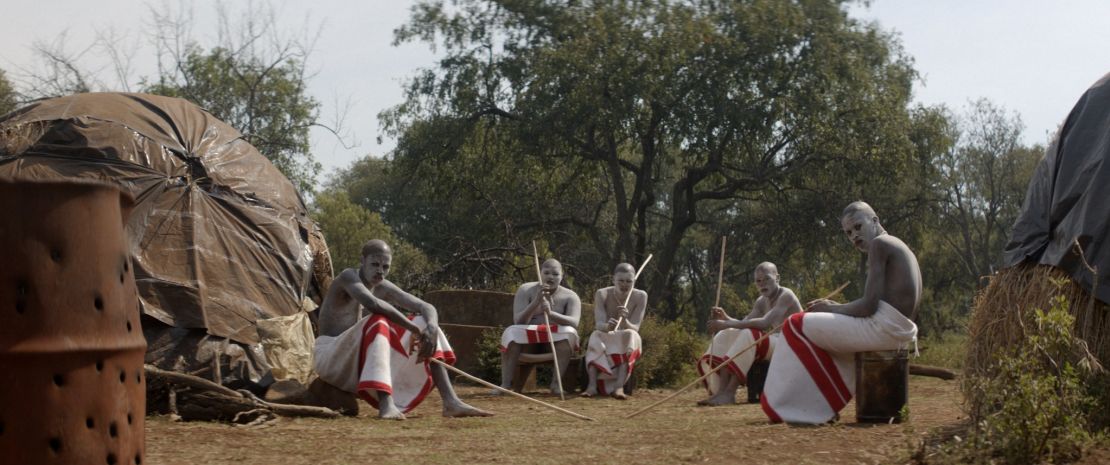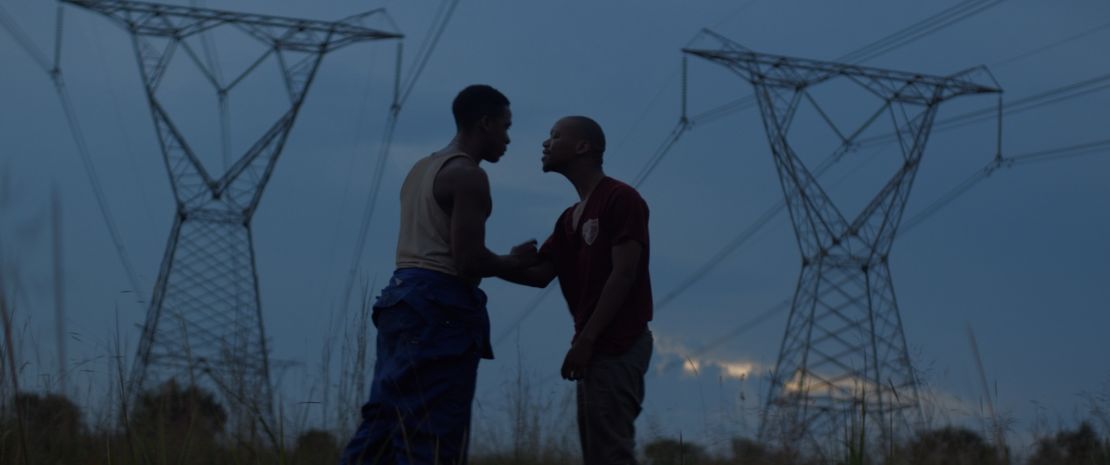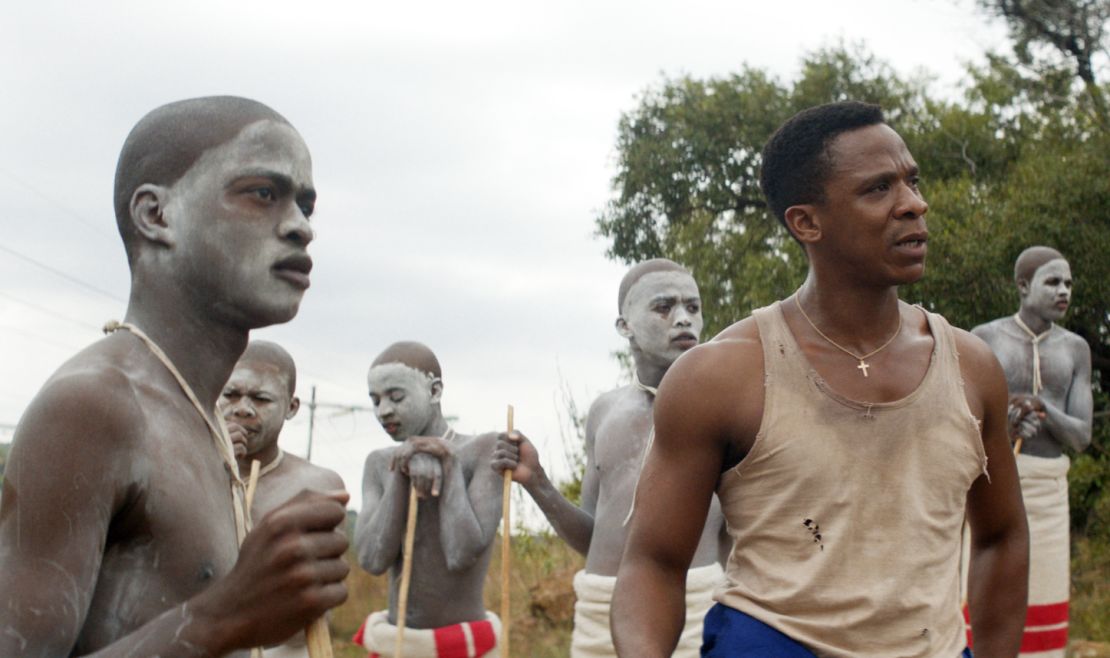“An uncircumcised Xhosa man is a contradiction in terms, for he is not considered a man at all, but a boy.”
The words of late South African president Nelson Mandela in “Long Walk to Freedom” preface the reverence and gravity placed upon “ulwaluko,” the initiation male Xhosa youths must face on their road to manhood.
Twice a year thousands of initiates will venture into the Eastern Cape bush, led by caregivers entrusted with guiding these boys. Central to “ulwaluko” is circumcision, performed by a traditional surgeon and without anesthetic. Initiates must show no fear and shed no tear during what Mandela called “a trial of bravery and stoicism.”
After that, weeks are spent away from civilization in a male-dominated camp, healing and growing into the role of a man before returning to society with respect and the expectation to take property and a wife.
Mandela’s account was taboo-breaking when first published in 1994 – but when you’re the father of a nation, perhaps one is granted a free pass for disclosing cultural secrets.
South Africa’s Xhosa community has been less generous to upcoming film “The Wound” (“Inexba”), a critically lauded but publicly divisive feature by director John Trengove.
Telling the love story of two gay Xhosa men and set against “ulwaluko,” the film has proved controversial, facing calls for a boycott as its star Nakhane Toure receives homophobic abuse. The furore threatens to cloud a gripping study of inter-generational attitudes towards homosexuality, illuminating a corner of the LGBT community, stifled, if not silenced, by the precedents of its cultural traditions.
The film has drawn comparisons to “Moonlight” (2016), recent Oscar winner and a movie which called black masculinity into question. So can “The Wound” do the same for one of southern Africa’s most entrenched acts of heteronormativity?
After screenings at the Sundance Film Festival and the Berlinale earlier this year, all eyes are on “The Wound’s” domestic release. CNN spoke to Trengove and Toure about their journey bringing a boundary-pushing film to life.
A story waiting to be told
Speaking after the Berlinale, Trengove had just received a second round of positive reviews for his debut film. At home social media was abuzz, but the chatter was far more mixed.
Based almost entirely in and around an initiates’ camp, “The Wound” depicts a circumcision ceremony and audiences are privy to the day-to-day life of these would-be men. Shot in collaboration with a first language isiXhosa cast, all but one of whom had been through “ulwaluko,” the director had been at pains to tread delicately, and chose to omit much of the rite. But for some AmaXhosa, a secret rite should remain exactly that.
“The film has already come under a lot of fire for simply existing,” Trengove says.
“They don’t know what it’s about, or who made it, they’re just really mad that it exists,” adds Toure, the film’s lead. The main contention, its star believes, could be the queer narrative set against this backdrop.
“People were mad that a specific passage was being mentioned,” says Toure, who is openly gay. “But underneath it was the whole idea that the queerness made it even more perverse. It exacerbated how disgusting it was to them in their eyes.”

Toure plays Xolani, a closeted warehouse worker charged with caring for young initiates. He returns time and again to perform the task, not out of a sense of duty but to reunite with Vija (Bongile Mantsai), a family man and alpha male supressing his own homosexuality. Their biannual affair is interrupted by Kwanda (Niza Jay Ncoyini), a precocious gay initiate from the city, frustrated by the two’s repressed attitude towards their sexuality.
Tradition, class and toxic masculinity clash in the pressure cooker of the camp, and tensions simmer before rising to an inevitable boil.

Trengove and his co-writers Thando Mgqolozana and Malusi Bengu wanted to explore, in the director’s words, the notion “that the initiation is quite widely regarded as, not quite a cure, but an end for homosexuality.
“It’s behavior that’s tolerated at an adolescent level, but once you pass through the initiation you’re expected (…) to leave those sort of ‘childish proclivities’ behind.”
“We discovered in talking to a lot of gay men who’d been through the initiation that it poses a huge crisis… because you’re either going to essentially live in the closet or you’re going to have to live away, to live another kind of life elsewhere.”
A 2016 paper by Anathi Ntozini and Hlonelwa Ngqangweni details similar findings, as well as the belief that gay Xhosa men “may be viewed as compromising the sacredness of the practice.”
Toure himself recalls stories of other gay initiates called “perverse, mad, demented (and/or) insane.” But elsewhere, Ntozini and Ngqangweni reference an initiate receiving visitation from his boyfriend, while retaining the respect of his peers.
It’s impossible to generalize, says “The Wound’s” star.
“The more interviews (I did), I thought it would become easier to answer the question (of Xhosa culture’s attitude to homosexuality), but the more I answer the question the more nuance I see in it.”
“There’s nothing I’m more proud of than being Xhosa,” he says. “Sometimes I feel like there’s a demonization of the culture. On the other hand, the culture is very patriarchal.”
A social media campaign against the film has seen Toure the recipient of “incredibly homophobic and violent” hate mail, he says. But, the actor and director both add, there’s plenty of people supporting the film’s desire to provoke a debate.
“Society has been groaning to have the conversation brought up by #TheWound,” wrote one online commentator. “It was a matter of time.”

“I felt like this wasn’t a story that had been heard before,” says Toure. “You always hear the word duty, but I felt it was important of me to be part of something that did that.”
As the film industry aspires to greater diversity, it’s becoming clear the issue is not only skin deep.
LGBT cinema is moving away from the margins, the director argues. Trengove cites “Stranger By The Lake” (2014) as a recent example of mainstream success, which was followed by “Carol” (2015) and “Moonlight” – another film charting the path of a young gay black man to adulthood. “Call Me By Your Name” (2017), as well as “The Wound,” look to continue the trend this year.
“I think (LGBT cinema) is becoming normalized, becoming more a part of the fabric of everyday movies,” Trengove argues. “(It) is a real breakthrough, in that there seem more audiences interested in these kinds of narratives.”
Masculinity as we see it on screen is diversifying, and “The Wound” is playing a part in that. It might appear confrontational to some, liberating to others, but cinema is catching up with reality.
“There’s no homogenous idea of what masculinity is,” says Toure. “There never was, and there never will be.”
“The Wound” will be released later this year.







![Herdsmen become hurdlers in the Omo Valley, Ethiopia. Young men of the Hamar tribe, one of many in the valley, prove their manhood by jumping on prize bulls and then running across their backs -- all while naked. The purpose? It's a coming of age ceremony, and only when the participant has traversed the bull run four times will he be allowed to marry. Slip and you risk a hard fall: "Because it's a manhood initiation ritual, [failure] is likely to affect the perception of someone's manhood and that of course can have all sorts of dire consequence," adds Dr Lewis.](https://media.cnn.com/api/v1/images/stellar/prod/161110162545-hamar-tribe-bull-jump.jpg?q=w_4593,h_2934,x_0,y_0,c_fill/h_447)









